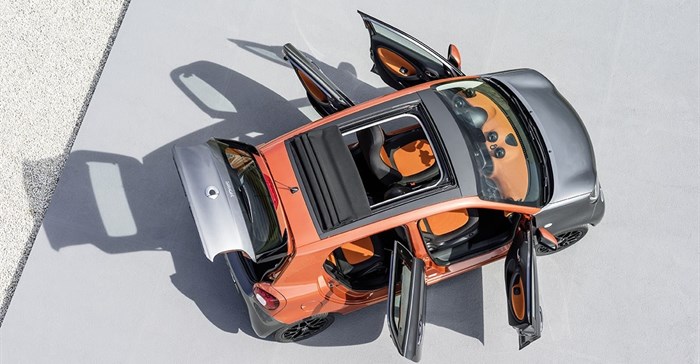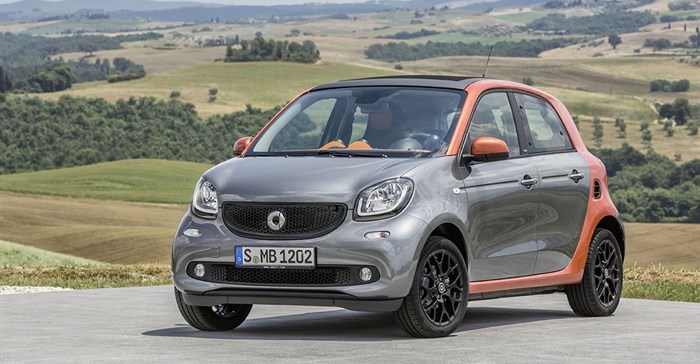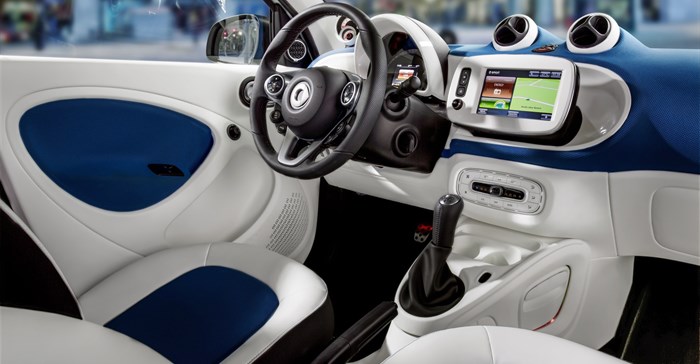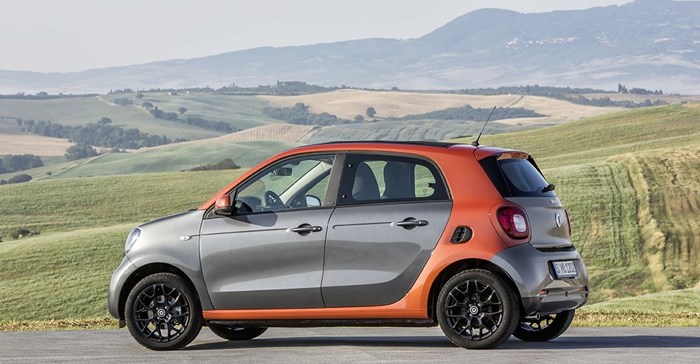The funky new Smart, 'baby' of the vast Daimler stable, is even cooler, and it is bigger, safer, more fun to drive than its predecessor and enriched with a wide range of new fancy kit.
The quirky Smart is offered in two-seater Fortwo and four-seater Forfour formats and a choice of two engines, manual or automatic transmission, and in four specification levels Base, Passion, Prime and Proxy, with price tags between R174,900 and R242,900.
Trendy appeal
The Fortwo range, which is likely to appeal to single, trendy people of both sexes only offers a 1-litre, three-pot engine that produces 52kW and 91 Nm, linked to a five-speed manual transmission – a combination designed for economical city driving. The more family-friendly Forfour version is offered with a choice of two engines – a 52kW with a manual transmission and slightly more powerful 66kW engine with a six-speed, dual-clutch automatic transmission.
At the local media launch I drove both the Fortwo and Forfour models, but not the top of the range Forfour auto models (only due to arrive here in July). Although still a tad choppy, the suspension is a definite improvement on that of the previous model. The handling, too, is better although still not quite as refined as contenders such as Fiat and Volkswagen (for the Fortwo) and Toyota Aygo, VW Up, Renault Twingo, Citroen C1 and Opel Adam (for the Forfour).

One of the most impressive features of the new Forfour is that it now also brings to the market a much more driver-friendly manual transmission in the place of the irritatingly slow auto box of the previous model, as well as a stepped-up six-speed automatic gearbox for its more powerful models. The Smart cars also move quite a few steps up the refinement stakes in the safety department, exterior and interior looks, living quarters and driver assistance systems such as Lane Keeping Assist, Crosswind Assist and Forward Collision Warning.
Impressive storage capability
Both the Forfour and Fortwo versions offer surprisingly generous (considering their size) and easy to access storage space (particularly the Forfour with its fold-down back seats), as well as the practicality of a twin-section tailgate, perfect for crowded parking lots.
In the beauty stakes all the models are funky - cute and gaily dressed with bright exterior two-tone colours, daytime running lights and prominent grill with trim in a choice of colours to match or contrast with body panels, including silver, white or black. Performance-wise, both models are on the sleepy side in the 0-100km/h stakes, but fuel consumption is frugal with claimed usage of 4.1-litre/100km for the Fortwo, and 4.2-litre/100km for the Forfour.
Because of its compact size, neither version has a spare wheel or run-flat tyres, although even the entry level models have ABS brakes, electric windows, central locking, stability control and even cruise control. Further up on the snazzy (and more expensive) variant ladder, standard features include a multi-function steering wheel clad in leather, a multi-media system with real-time navigation, 3.5-inch colour display touch screen and smartphone integration.
Parent company Daimler does not disclose sales volumes of any of its vehicles but readily admit that the Smart plays in the limited volume segment of the local market. Internationally, the Fortwo has already sold 1.6-million units and it records annual sales of 100,000 of its funky city car.
Both the Smart Forfour and Fortwo have grown up in many ways but still are more 'hearts than minds' purchases and prospective buyers will have to weigh-up some important P’s – pose, practicality, purchase price, performance and its purchase price-inclusive three-year/60,000km service plan before signing on the dotted line.
















































